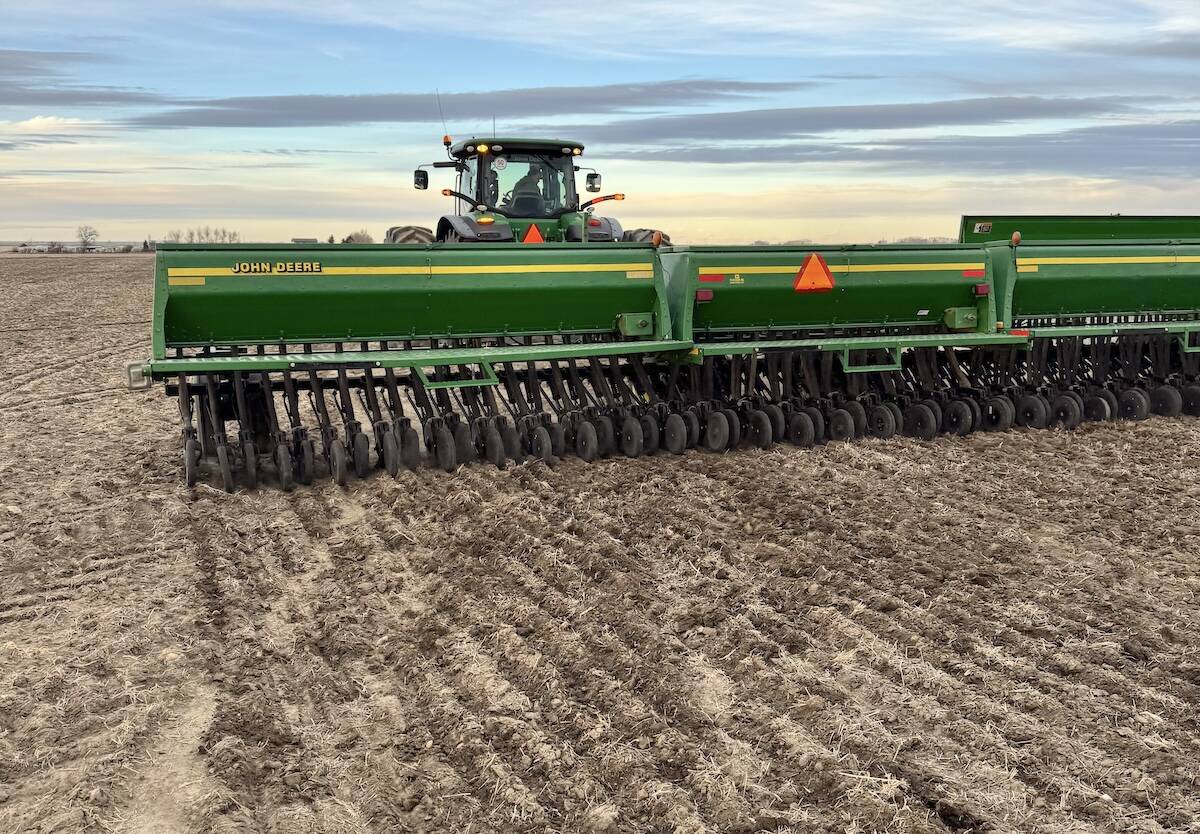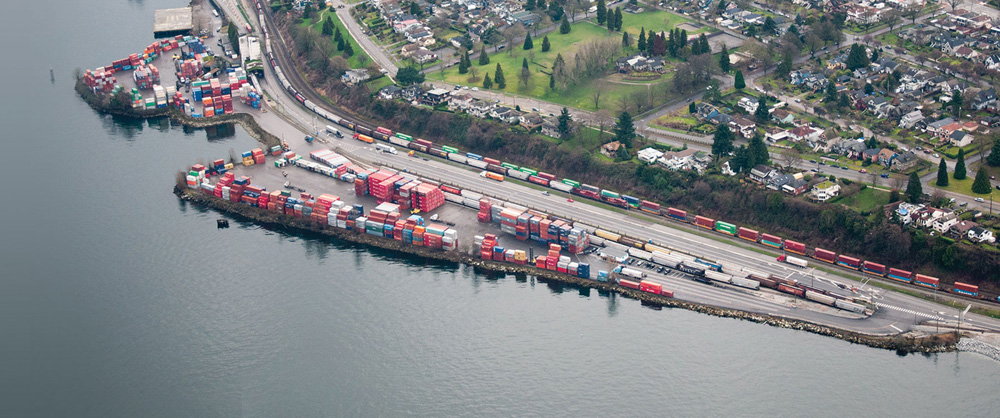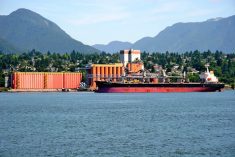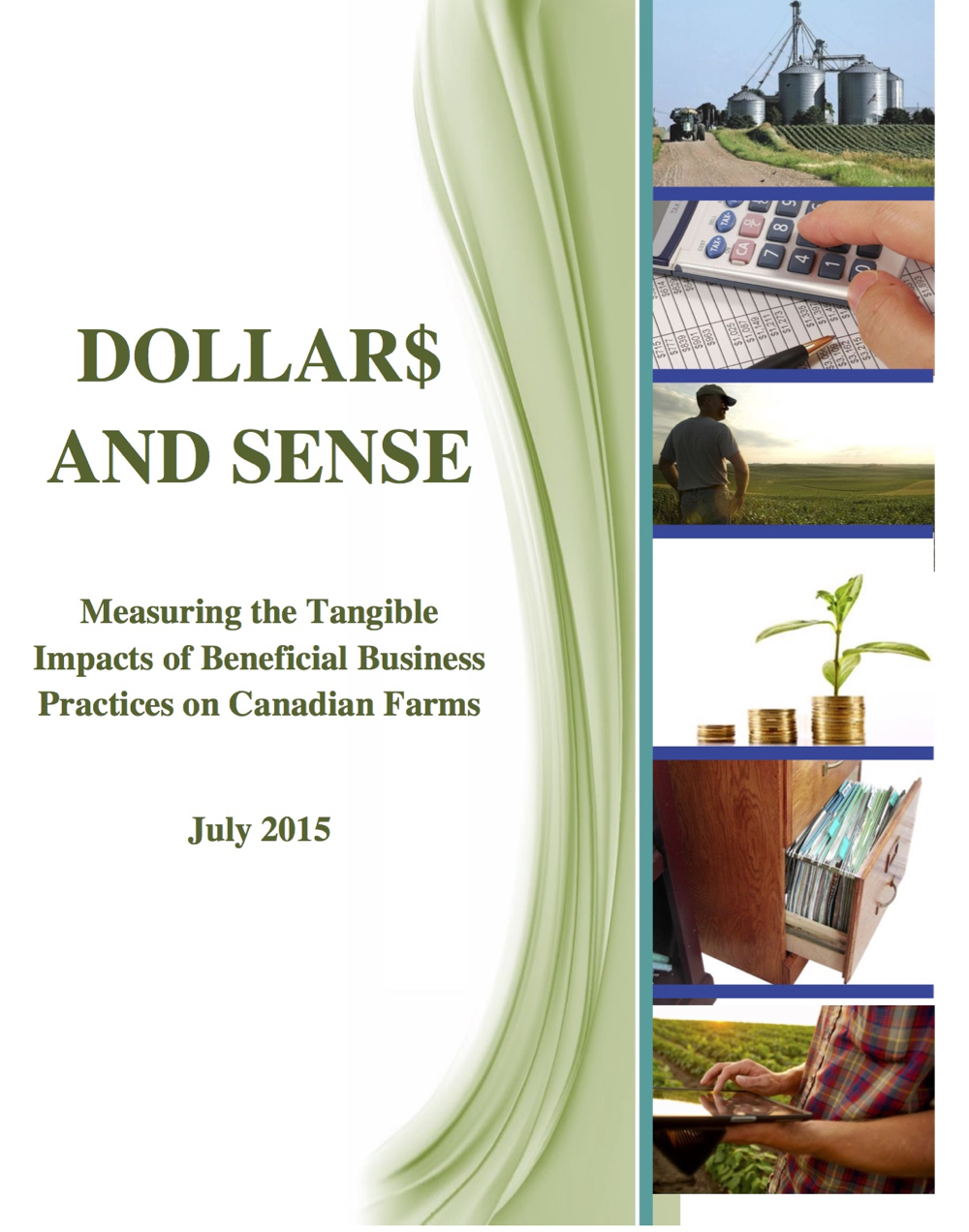A big jump in special crop acres in Western Canada has grain shippers looking to the future — and for Columbia Containers, that future looks bigger, better, and more high tech.
“We’re replacing our existing facility on the same Port of Vancouver property and turning it into a state-of-the-art transload facility,” said Columbia Containers general manager Dean Giles.
“This facility will be able to double our capacity. That’s our goal. Our intent is to bump annual volumes upwards of 1.3 million tonnes.”
Columbia Containers is owned by Fort Saskatchewan-based Providence Grain Solutions, which was started by Alberta producers in 2002 and remains one of the few independent, producer-controlled grain companies in Western Canada. (Kansas-based Lansing Trade Group owns 38 per cent of the company.)
Read Also

From winter soil to bountiful crops: Alberta’s ultra-early seeding experiment
Southern Alberta farmers are putting research into practice, pushing ahead traditional seeding times by months for spring wheat and durum.
Columbia Containers currently has roughly 650,000 tonnes of capacity for western Canadian grain and special crops, including peas, lentils, and malt barley. In addition to doubling that capacity when it opens in April 2018, the $26-million rebuild and expansion will add dual rail track unload and dual load-out capacity, as well as 11,000 tonnes of storage.
That boost in both efficiency and capacity is being driven by a growing special crop industry, said Giles.
“Last year, we saw significant growth in peas and lentils,” he said. “Yields have been increasing and acres have steadily grown. We’re confident that the acres are going to be there and we believe that the production is going to be there as well.”
The current facility is “maxed out” during harvest, he added.
“We can’t keep up with demand through the busy season,” he said. “Adding more container capacity in the port will allow more product to move during those months, which will be a benefit for everyone.”
That will make life a little easier for Alberta special crop producers, said Gibbons-area farmer Michael Kalisvaart.
“Taking bulk train cars of special crops from various companies throughout the Prairies and then packing them into containers is definitely a growing business,” said Kalisvaart, a shareholder and past chair of Providence, which has three Alberta elevators (in Gaudin, Crossfield and Viking), and one in Marengo, Sask.
“Growing special crops is taking a larger share of the market these days on the Prairies. I think it’s a real growth opportunity for farmers and for Columbia as well.”
The old facilities were “aging a fair bit” and couldn’t keep up with the growing demand, said Kalisvaart.
“We wanted to build more efficient infrastructure and expand our ability to take larger volumes and blocks of train cars at a time,” he said.
“By being more efficient and handling greater volumes, we can push more special crops through there every year.”
It will also allow Columbia to take on additional business that it had, up to this point, been forced to turn away, including shipping canola meal pellets.
“We run overcapacity, and we need that availability to accept some of that other business,” said Giles. “Right now, we can’t do 100 per cent of Providence Grain’s container business because we just cannot handle its volume. We’re turning business away today from some of our key customers, and that’s based solely on the fact that our existing facility just can’t handle the volume.”
Once the new facility comes online, Columbia will be better able to keep pace with the “steady growth” in special crop production — a boon for producers who are hoping to expand their acres.
“Columbia receives grain from companies from all across the Prairies, and I think increasing the volume is just another way to get our crops to the coast,” said Kalisvaart.
“By providing an efficient and well-run facility there and increasing the volume of containerized traffic, that should allow for an increased volume and increased opportunities for farmers across the Prairies.”















